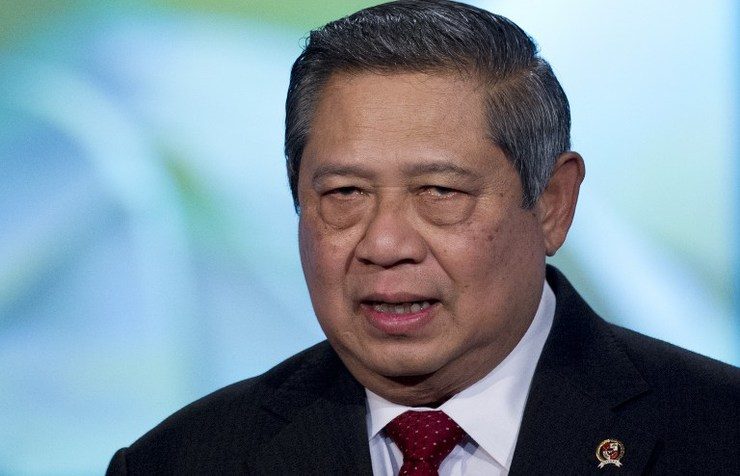SUMMARY
This is AI generated summarization, which may have errors. For context, always refer to the full article.

JAKARTA, Indonesia – Outgoing Indonesian President Susilo Bambang Yudhoyono announced Tuesday, September 30, he would issue a presidential decree to reverse the controversial new law that scraps the direct election of local leaders.
The law that strips the people of the power to elect district heads, mayors and governors was passed by the House of Representatives in the early hours of Friday, September 26, and is seen as a major blow to Indonesia’s young democracy.
It states that such leaders will be chosen by local legislative councils – the way it used to be before post-Suharto reforms led to the first direct regional elections in 2005. This prompted a major backlash from everyday Indonesians who accused the president of supporting the law after his Democratic Party refused to vote and handed victory to its supporters.
“This is politics – I will take the risk and have decided to issue a presidential decree. We will see whether or not the House fully accepts it,” he told reporters in Jakarta after returning from the UN climate summit in New York, where he was during the vote.
Damage control
Worldwide Trending Picture! pic.twitter.com/J4fw6NoQI8 via @Triawan #ShameOnYouSBY #ShamedByYou
— Rene Suhardono (@ReneCC) September 28, 2014
Yudhoyono, Indonesia’s first directly elected president, was forced to cut his foreign trip short to deal with the controversy, which has seen him bear the brunt of criticism since the bill was passed.
The Democrats were expected to oppose the bill and support maintaining direct local elections. But in a surprise move, they abstained from voting and walked out of the plenary session after their 11th-hour proposal to keep direct elections on 10 conditions, or “improvements”, was rejected by the House speaker.
Yudhoyono immediately announced he was “disappointed” by the passage of the law and ordered an investigation into who orchestrated the walkout. But these did little to appease angry netizens who have been tweeting feverishly with hashtags such as #ShameOnYouSBY and #ShamedByYou since the bill was passed. The president’s return on Monday was even greeted with the hashtag #WelcomeMrLiar.
The parties that supported the bill were those which back former general Prabowo Subianto, the only opponent of President-elect Joko Widodo in the July election. The law’s passage is seen by analysts as revenge and a way to stop figures like Jokowi rising through the ranks.
Will it work?
Yudhoyono’s announcement on Monday reportedly came after consultations with the Constitutional Court and other legal experts on options available to him. He initially said he would not sign the law, but Constitutional Court chief Hamdan Zoelva told him the the law would go into effect with or without his signature.
There are also efforts to challenge the law at the Constitutional Court. On Monday, a coalition of several local rights groups, including leading organization Imparsial, filed for a judicial review of the new law at the Constitutional Court. A group of concerned citizens unconnected to any specific group also filed a challenge, as did leading lawyer O.C. Kaligis, court spokesman Budi Djohari told AFP. But experts are still divided on whether this would work as indirect elections through the legislature may not necessarily be unconstitutional.
The presidential decree was a surprising move as there’s no guarantee it would work. While it has the same weight as a law, the House can cancel it.
The legislature that passed the law ended its 5-year term on Tuesday, and any opposition to Yudhoyono’s decree will be voiced by newly elected members, the majority of whom are in Prabowo’s coalition.
“If the (incoming) House takes note and listens to the aspirations of the people, it will keep direct elections with the improvements we have proposed,” Yudhoyono said.
Yudhoyono’s second term has been dogged by complaints of inaction and corruption scandals in his party and cabinet.
But political analyst Paul Rowland said that it was unlikely Yudhoyono had wanted his party to walk out of the legislative session.
“He understands that this about his legacy, so I don’t think this is a matter of the hash tag went out and he changed his mind,” he said. – with reports from ATA and Agence France-Presse/Rappler.com
Add a comment
How does this make you feel?
There are no comments yet. Add your comment to start the conversation.